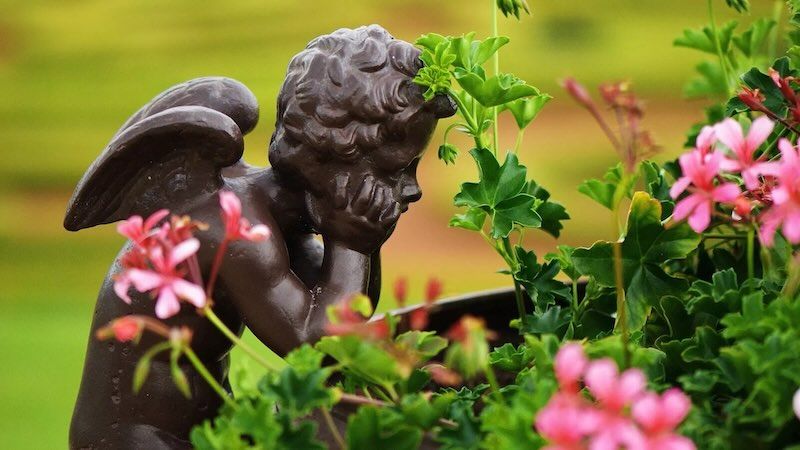Dennis Patrick Slattery
The Poetics of Myth and Its Embodied Expression

In the last few years a resurgence in the nature of narrative, of story and personal and collective identity has gained widespread attention. My interest in one’s personal narrative is tied to the nature and structure of myths, both personal, national and global. So what is it to make a myth and to live by a myth?
First of all, myths are the most inclusive expressions of a people’s beliefs, superstitions, values, desires and memories. They also contain expressions of what is not valued and perhaps should be dismissed, left behind as one develops one’s life and understanding. I also sense that a mythic disposition is a poetic disposition. I use the term poetic in its earlier, more original form to mean a making, constructing and shaping something into a coherent form—often but not limited to a narrative, a functional fiction—that helps us navigate our way through each day.
Moreover, a myth is intimately tied to our identity, to the plot line or through-line of our being. So myth is also ontological because it addresses our being-ness, our reason for being and for knowing who we are. I like to think of an individual or a collective’s myth statement as their mission statement; it addresses what one stands for, is willing to fight for to preserve its existence. If we do not know who we are, why we are here and what we are willing to defend as crucial shaping values, we are on the edge of living a mythless life. A life without meaning is a life without a coherent mythos.
Going a bit deeper, a mythic imagination, what we turn to in the poiesis or making of our myth, seeks to intuit the invisible presences that guide our existence, form our behavior and structure our perceptions, so that in recognizing them we can deepen our own scope of vision and understanding. The analytical psychologist and mythologist, C.G. Jung, called this adventure the individuation process, by which we become the unique and whole person we were born to become.
So a mythic life carries a paradox: it is at once in the vital act of becoming while at the same moment completely being the person we are. The poetics of myth, then, attends to how we are making our life into a meaningful purpose that guides us towards wholeness and independence as well as being a contributing positive force in and for the collective. A maturing personal myth understands the veracity that each of us is responsible for all of us, beginning with one’s self.
Myths are also pattern-generating and pattern-following. Every life develops a series of patterns that help one negotiate what is familiar and, one hopes helps one discover new ways to apprehend and deal with the new, the unfamiliar, and finally, the unknown. What I don’t know is part of my personal myth; what I have yet to live is part of my personal myth; the stories I tell myself and others about is part of my personal myth. In the best sense of it, we are each narrative fictions functioning in a world with other narrative fictions. Our fictions are the essential fabric of our lives.
We can sometimes forget, however, that these stories are not carved in granite; they can be re-storied, revised, amended and even sensed as never-ending. Each of our lives are like so many writers who continually negotiate their fictional creations to bring them more in line with the true authentic and poetic form they were originally seeded to be. So does each of us, even without knowing fully what we are doing, revise our narratives, one always hopes, to be more in line with our evolving authentic self. Doing it for any other reason betrays the myth we are destined to live out as fully as possible.
Continual reflection on our own story allows us to see anew our identity as it evolves through joy, suffering, failures, achievements and loving relationships.
We cannot forget that our myth is always embodied, in our actions, rituals, celebrations or even sitting silently and reading. A mythic life is a fully aware embodied life. Myths are not head trips alone. They are also embodied heart trips.
Meditating on our personal myth is an act of poetics, of shaping the myth to conform to our truest self. It is the work of a lifetime, so it demands enormous courage, fortitude and caring for ourselves and others. We are all in an interconnected series of mythologies, even when alone, sleeping and dreaming, which is another source for images of our personal myth to be activated.
The journey inward is a mythic and poetic pilgrimage where self-discovery never ceases. How boring our lives would be if this were not true!
Dennis Slattery invites you to discover The Poetics of Myth. Join his new course and explore poetry and mythology through many of the insights of depth psychology. We will investigate together: How is psyche poetic and how is poetry psychological and mythological? How are they both the vehicles that carry as cargo the universal realities that govern and shape all of our lives, regardless of our differences?
Share
Other blog posts

Jung Platform is an online education space that offers a range of depth psychological and spiritual perspectives. Our courses and talks explore the journey of life with guidance from highly regarded teachers.
We are passionate about offering practical, life-enhancing tools and opportunities to connect with others on this path. Our aim is to help people connect to their own soul, so they can live more fully and colorfully.
Stay inspired.Get our magical updates.
Thank you for signing up!
FEATURED LINKS
-
Headquarters in Salt Lake City, Utah
-
info@jungplatform.com
-
Copyright © 2026
